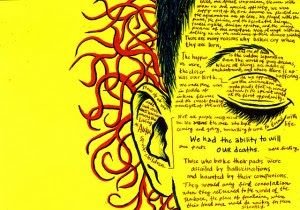Unit 7: Ecology and Development (Grade 11 Compulsory English Grammar Solutions)- New Course
|
prefix |
words |
prefix |
words |
|
mal |
maldevelopment, malpractice, malfunction
|
mis |
Misbehave, misplace, misfortune |
|
un |
unable, unhappy, unfair |
in |
inactive, incomplete, insufficient
|
|
pre |
prepaid, predetermine, preview |
il
|
illegal, illegible, illiterate |
|
dis |
disloyal, disobey, dishonest |
im |
impolite, immoral, impartial
|
|
re |
remix, repay, reuse |
ir |
irregular, irresponsible, irrelevant
|
|
de |
derail, depart, degrade |
non |
nonprofit, nonstop, nonsense
|
Grammar
Transitive, intransitive and linking verbs
What is the
difference between a transitive verb and an intransitive verb?
A transitive verb is a verb that requires a direct object, which is a noun, pronoun, or noun phrase that follows the verb and completes the sentence's meaning by indicating the person or thing that receives the action of the verb. The direct object typically answers the question what? or whom?:
The kids like pickles.
That really annoys me.
Have they sold their house yet?
An intransitive verb is not used with a direct object. If something comes after an intransitive verb, that is, in the position usually inhabited by the direct object, it doesn't answer what? or whom?; instead it answers a question like where?, when?, how?, or how long?:
Her cat died suddenly last week.
Someone was coughing loudly.
Linking Verbs
Linking verbs connects the subject of a sentence with an adjective, noun or descriptive phrase. They do not indicate action in a sentence; rather describe a state of being, a result or one of the five senses.
The most common linking verb
is the verb to be.
Other common ones relate to the five senses (look, feel, smell, sound, and taste).
Be- I am a doctor
Appear- The diamonds appeared to be genuine
Become- Pollution from car has become a major problem
Feel- I feel awful about forgetting her birthday
Grow- she grows prettier everyday.
Look- You look tired. You should go to bed.
Remain- She remains undecided about what to do.
Sound- That sounds a good idea.
Taste- Mmm! This tastes yummy.
Smell- the cream smells funny.
Prove- The task proved too difficult.
C. Underline the verb in each sentence and write whether it is transitive, intransitive or linking.
a. His father looks handsome.
b. Bhawana drinks milk every day.
c. He became a watchman.
d. This bread smells good.
e. The dog barked loudly.
f. He chased the dog.
g. My sister swims fast.
h. He painted a picture.
i. Radhika always asks questions.
j. Anjana has long hair.
Answer Key:
a. linking verb b. transitive c. linking verb d. linking verb e. intransitive verb f. tranisitive verb g. intransitive verb h. transitive verb i. transitive verb j. linking verb
Speaking
Asking about opinions/giving opinions
A. Read the expressions for asking about and giving opinions.
|
Asking about opinions |
Giving opinions |
|
What do you think? -What’s your view? -How do you see the
situation? -What’s your opinion? Do you think (that)…? Would you agree with me that…? Don’t you think (that)…? |
I think/reckon… In my opinion/In my view… I feel that… As far as I’m concerned… From my point of view… Well, I reckon (that)… I believe (that)… Personally speaking, I believe/think… As for me, I reckon… |




Comments
Post a Comment